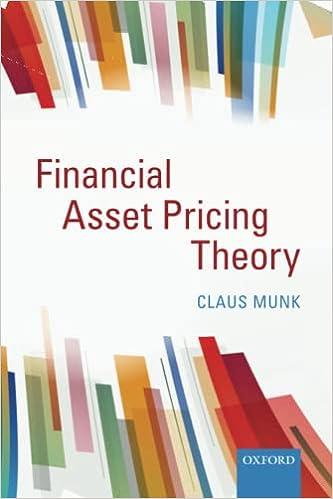Imagine a one-period economy with two possible end-of-period states that are equally likely. Two assets are traded.
Question:
Imagine a one-period economy with two possible end-of-period states that are equally likely. Two assets are traded. Asset 1 has an initial price of 1 and pays off 1 in state 1 and 2 in state 2. Asset 2 has an initial price of 3 and gives a payoff of 2 in state 1 and a payoff k in state 2, where k is some constant.
(a) Argue that if k = 4, the Law of One Price does not hold. Is the Law of One Price violated for other values of k?
(b) For what values of k is the market complete?
(c) For what values of k is the market free of arbitrage?
(d) Assume k = 8. Is it possible to obtain a risk-free dividend? If so, what is the risk-free rate?
Fantastic news! We've Found the answer you've been seeking!
Step by Step Answer:
Related Book For 

Question Posted:





